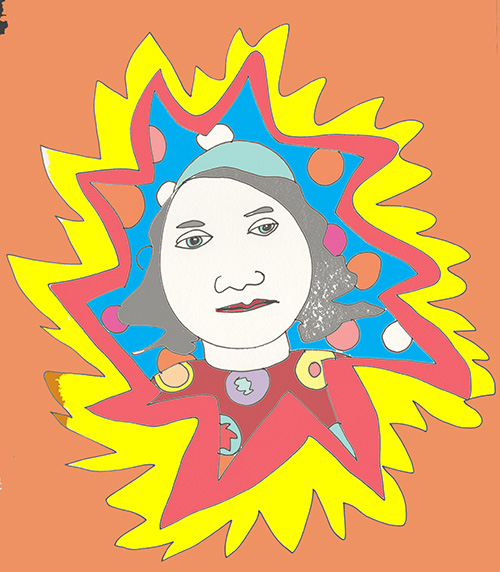I
The traveller into remote Oxfordshire
leaves his city on a November evening.
Hurtling darkness, sleeve-wiped windows –
gathering omens foreshadow depravity.
Consumption once ensured his existence.
The town leads inexorably downhill to a
market square both sinister and suggestive.
Here human sacrifices are commonplace.
A deranged fortune-teller screams
of impending Ofsted inspections.
Marital aid shops jostle threadbare
“Fishing tackle & bait suppliers”.
At precisely 10.29pm
a middle-aged man leaves
the Old Crown Coaching Inn
and places a firework in a bin.
Signs proclaim regeneration
into a “fairtrade town” fit for
besieged liberals and other
marooned virtue signallers.
The explosion is colourful
and in some way delightful.
Ye lager flows. The laughter
glows warm and autumnal.
I saw nothing to
tell the instant
squad car of
plastic police.
.
II
In the courtyard of Faringdon’s art gallery stands a large block of wood.
A sculpture to ‘the depredations of time’, entitled Yew wood would you.
As winter slips into spring and then summer becomes fugginess and the upper-Thames winter, the piece waits sentient by the cinema.
Here are shown looped films:
Europe means us;
The stubbed toe;
Salvation in the fridge.
Its proprietor relocated from Harringay, for a descent into madness.
A retired alcoholic – without Barcelona or even Castro.
Rumours reach me in the Old Swan.
‘Spoken Word events in silence.’
‘Chased from the council estate.’
‘Accused of every known perversion.’
In desperation, he tries animating the local legend of a feral black beast stalking the bare fields and moon-lit copses.
.
III
It’s bad news I’m afraid.
I don’t know how to say it.
No one doubted your commitment.
Even as a pale boy there was promise;
have you thought of self-immolation?
The garden centres sell smokeless fuel.
Your name now meets only laughter.
.
IV
At midnight in these towns, a blue nylon rope is meticulously threaded through rougher areas – head height (health and safety) – accompanied by chanting of poems.
Kate Clanchy’s Ode to a man with no toes and Kevin Bostock’s A town called bastard.
Last week, a late cyclist – oh, for a flash of lycra – was unaware of this custom and experienced decapitation.
It could be metaphor, symbolism, or whatever.
Sensitive people, in buses slamming into winter darkness.
Surveying crossroads, sudden new builds, dispossessed bungalows.
Mad orange lights around the next curve –
look, there’s another town.
No, it’s just gone.
.
Paul Sutton
Illustration Nick Victor

